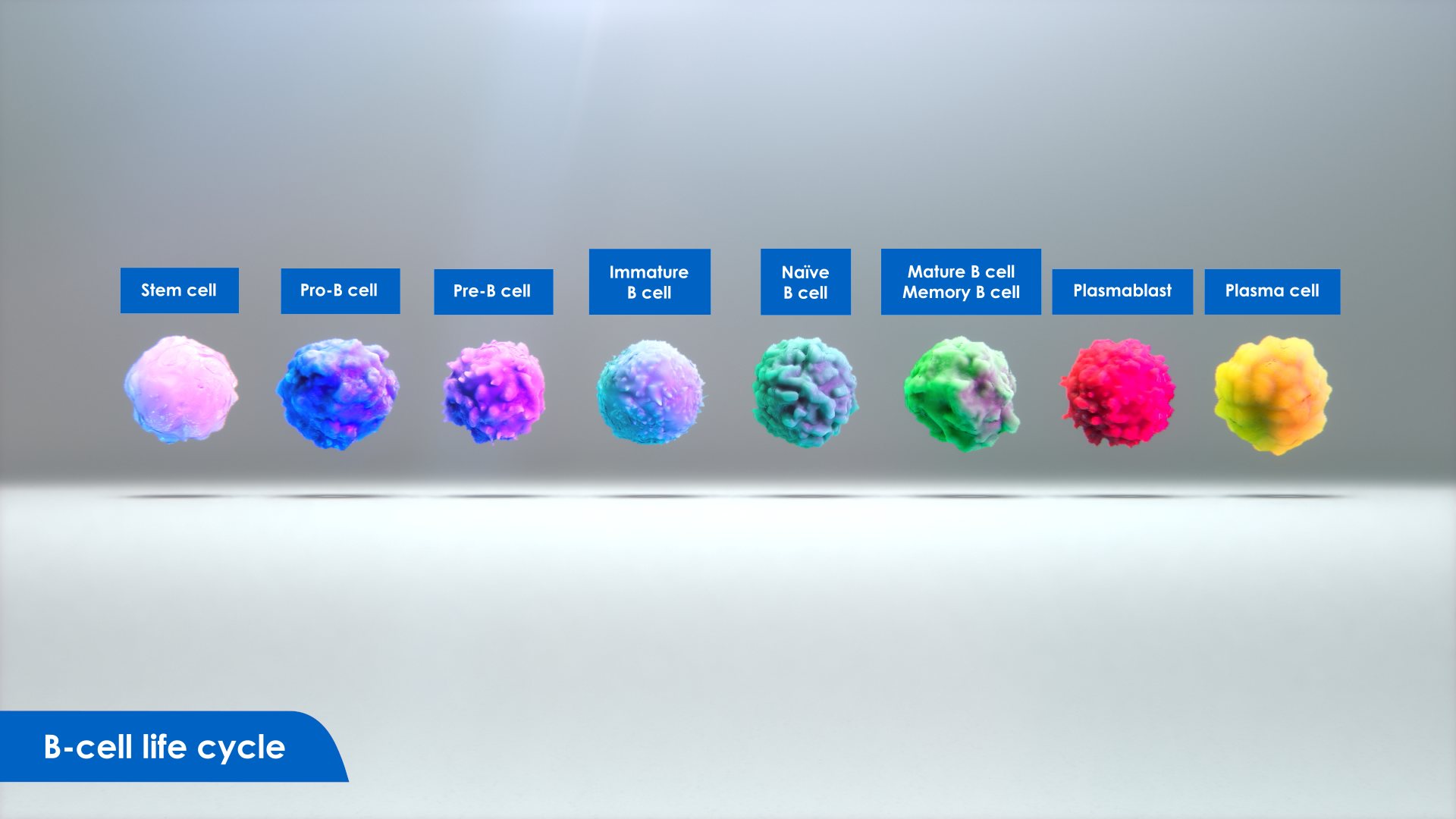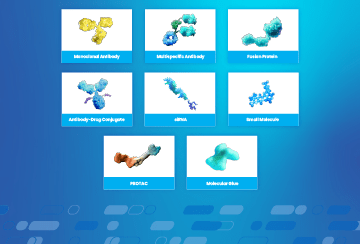Exploring CD19 Directed Therapeutic Strategies
B cells play a critical role in the immune system by producing antibodies to fight infection and orchestrating immune responses. Even in normal responses, B cells can release signals that add to inflammation. When these processes become overactive or dysregulated, B cells can drive ongoing inflammation and, in some diseases, produce antibodies that mistakenly attack the body's own tissues. This can contribute to the development of autoimmune and other immune-mediated conditions. These diseases are often serious and difficult to treat because many immune cells—including B cells and T cells—work together to sustain inflammation across different organs.
Emerging evidence suggests that therapies targeting B cells—including naïve and memory B cells, plasmablasts and some plasma cells—can be effective across a range of autoimmune diseases. CD19 is a key marker expressed on the surface of B cells at nearly every stage of the lifecycle, including antibody-producing plasma cells that can perpetuate disease. Because disease-driving B cells are found in places like lymph nodes, bone marrow and inflamed tissues—sites that are hard to reach—CD19-targeted therapies must demonstrate very high effectiveness at finding and reducing these cells prior to clinical testing. Leveraging advances in oncology immunotherapies, targeting CD19 may enable long-lasting B-cell depletion and help restore immune tolerance.
Recent advances in CD19-targeting therapies, including T-cell engagers (TCEs), has shown early promise in hard-to-treat autoimmune conditions such as multidrug-resistant rheumatoid arthritis (RA). This progress suggests the potential for TCEs in managing autoimmune conditions. While CD19-directed chimeric antigen receptor T cell (CAR-T) therapy has also been studied, it typically requires patients to stay near treatment centers and involves complex manufacturing processes.
Understanding the role of dysregulated B cells and the unique function of the CD19 marker is informing CD19-targeted approaches that are being explored for more patients and autoimmune conditions.
Expanding CD19 Approaches for Patients

What makes CD19 different? Unlike CD20, CD19 is expressed throughout B-cell development, including plasma cells.
Most existing B-cell directed therapies target CD20, a protein found on the surface of a subset of mature B cells but usually not on early B cell precursors or on plasma cells that actively make antibodies. These treatments may help many people, but some may still have disease activity because certain B cells or antibody-producing cells can remain or return over time.
By contrast, CD19 is expressed across nearly all stages of B-cell development—from early precursors to mature B cells and plasmablasts, and some plasma cells—so CD19-directed approaches can act on a broader range of B cells, including cells involved in ongoing antibody production.
B-cell therapies targeting CD19 offer treatment of autoimmune diseases, eliminating harmful B cells and offering a potential path to long-term, drug-free remission for patients unresponsive to conventional therapies.
New approaches offer tools to potentially manage immune-mediated diseases. For patients and caregivers, this can lead to new treatment options.
Amgen is exploring multiple CD19-directed strategies, including:
- TCE molecules: These are off-the-shelf therapies that simplify treatment by redirecting immune cells to eliminate CD19+ B cells, avoiding complex individualized manufacturing and lymphodepletion needs from CAR-T therapies.
- Human mAbs: These proteins selectively deplete harmful B cells while sparing other immune cells, reducing broad immunosuppression.
- Emerging modalities: This category includes next-generation immunotherapies such as half-life-extended TCEs, multispecific antibodies and combination immunotherapies that aim to enhance precision and patient convenience.
Collaborating with Experts and Advocates to Pioneer Novel CD19 Directed B-Cell Depleting Therapies
True innovation requires collaboration. Through initiatives like the B-Engaged TCE Autoimmune Collaborative (BETAC), Amgen is bringing together scientific leaders, clinicians and patient advocates to share insights and accelerate the development of TCE therapies. This collaboration ensures that patient experiences and insights guide the development of therapies that address real needs and drive meaningful progress in patient care.
Launching Trials for CD19 Directed B-Cell Depleting Therapies in Autoimmune Diseases
People living with autoimmune and immune-mediated diseases urgently need more options. Advances in B-cell science are leading to new therapies now in clinical trials, building on the established success of other CD19 targeting treatment options, as well as other assets in development.
Explore Amgen's CD19-focused clinical trials in autoimmune diseases: Frontier Clinical Study—Assessing CD19-Targeting Therapies in Select Autoimmune Diseases
Uncovering New Approaches for Patient Impact
Amgen is committed to advancing targeted therapies that can make a real difference for patients, partnering with societies, patient advocacy groups and leaders to help advance the field. Explore related stories:


